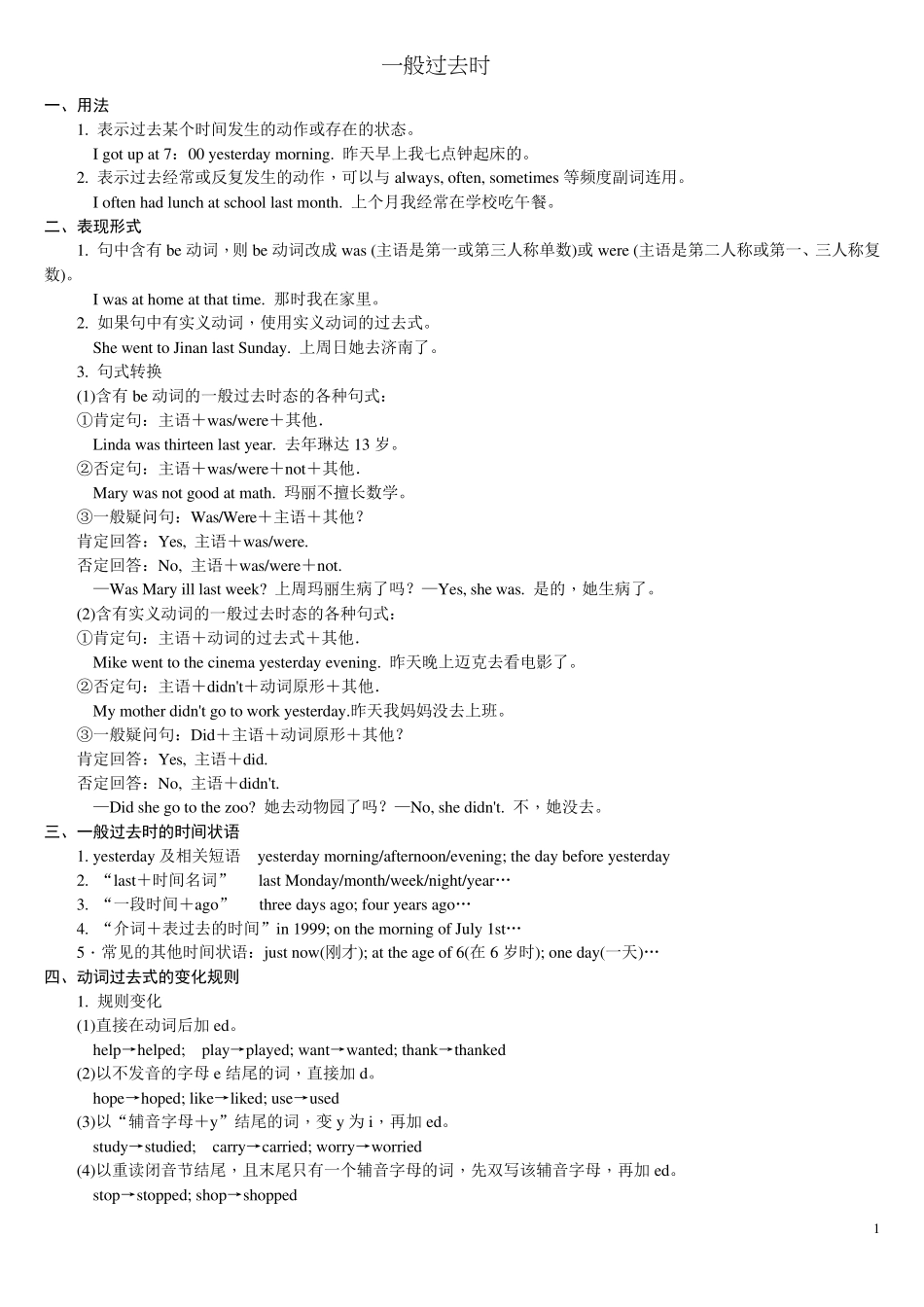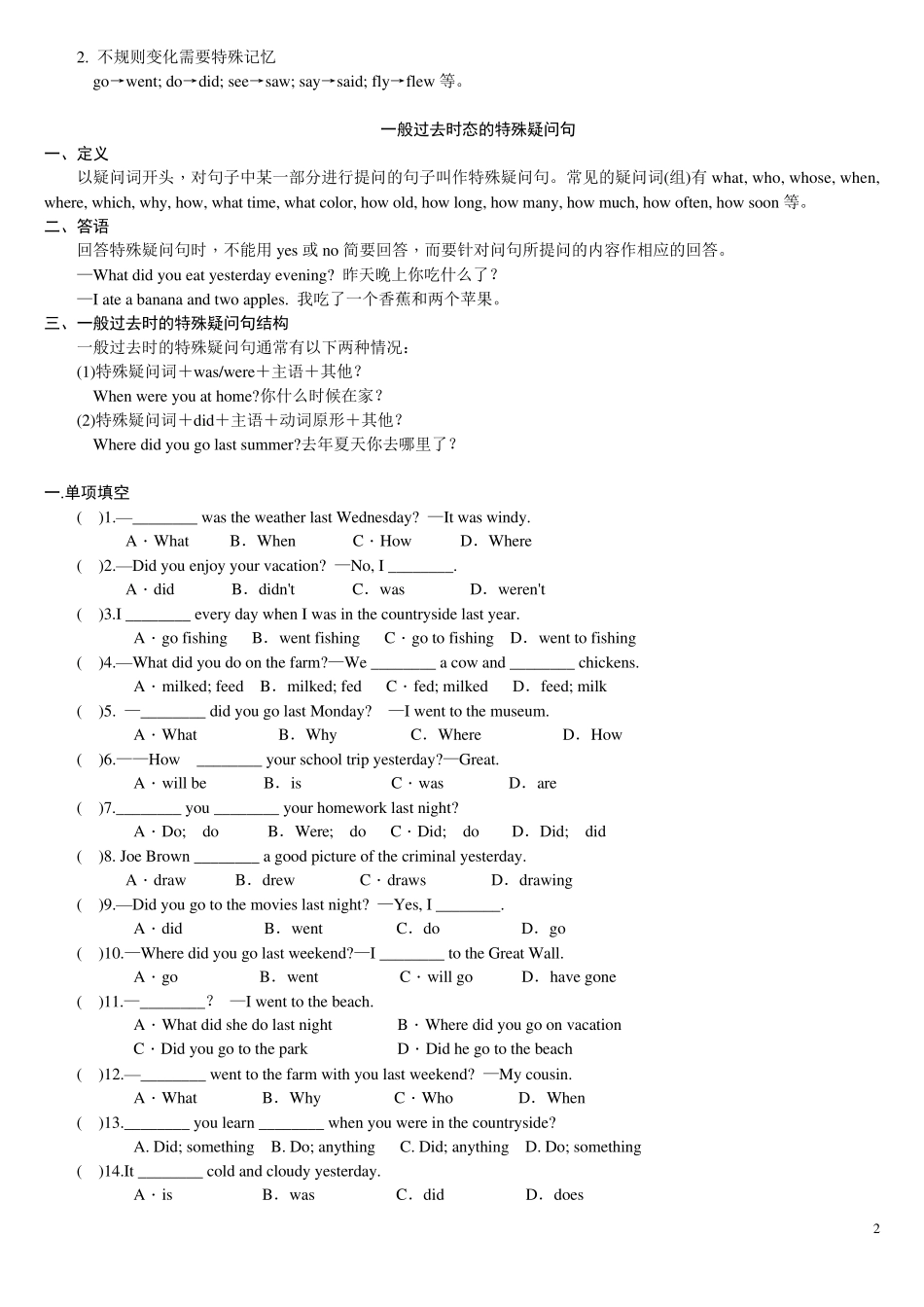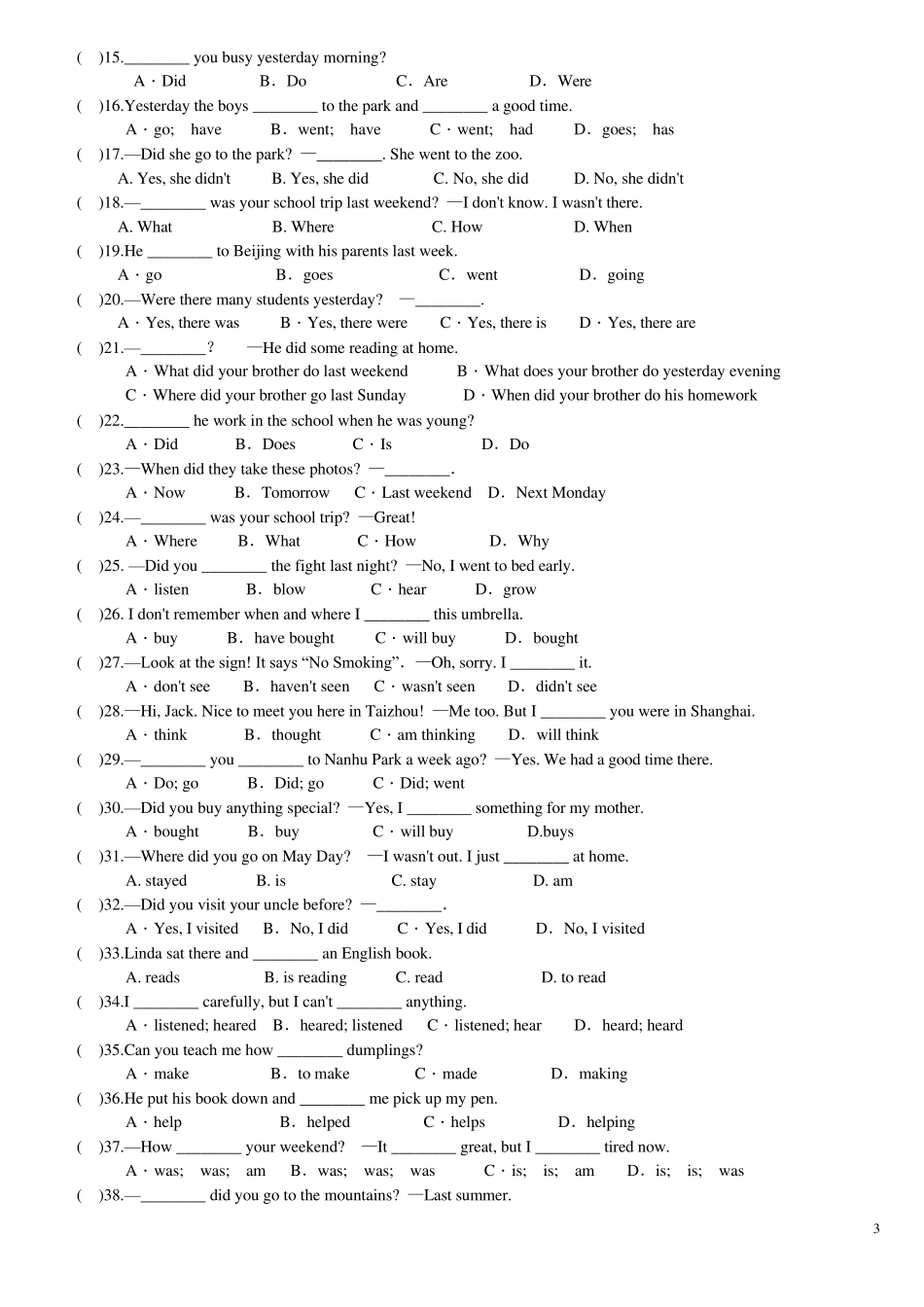1 一 般 过 去 时 一、用法 1. 表示过去某个时间发生的动作或存在的状态。 I got up at 7:00 yesterday morning. 昨天早上我七点钟起床的。 2. 表示过去经常或反复发生的动作, 可以与always, often, sometimes 等频度副词连用。 I often had lunch at school last month. 上个月我经常在学校吃午餐。 二、表现形式 1. 句中含有be 动词, 则be 动词改成was (主语是第一或第三人称单数)或were (主语是第二人称或第一、三人称复数)。 I was at home at that time. 那时我在家里。 2. 如果句中有实义动词, 使用实义动词的过去式。 She went to Jinan last Sunday. 上周日她去济南了。 3. 句式转换 (1)含有be 动词的一般过去时态的各种句式: ①肯定句:主语+was/were+其他. Linda was thirteen last year. 去年琳达13 岁。 ②否定句:主语+was/were+not+其他. Mary was not good at math. 玛丽不擅长数学。 ③一般疑问句:Was/Were+主语+其他? 肯定回答:Yes, 主语+was/were. 否定回答:No, 主语+was/were+not. —Was Mary ill last week? 上周玛丽生病了吗?—Yes, she was. 是的, 她生病了。 (2)含有实义动词的一般过去时态的各种句式: ①肯定句:主语+动词的过去式+其他. Mike went to the cinema yesterday evening. 昨天晚上迈克去看电影了。 ②否定句:主语+didn't+动词原形+其他. My mother didn't go to work yesterday.昨天我妈妈没去上班。 ③一般疑问句:Did+主语+动词原形+其他? 肯定回答:Yes, 主语+did. 否定回答:No, 主语+didn't. —Did she go to the zoo? 她去动物园了吗?—No, she didn't. 不, 她没去。 三、一般过去时的时间状语 1. yesterday 及相关短语 yesterday morning/afternoon/evening; the day before yesterday 2. “last+时间名词” last Monday/month/week/night/year… 3. “一段时间+ago” three days ago; four years ago… 4. “介词+表过去的时间”in 1999; on the morning of July 1st… 5. 常见的其他时间状语:just now(刚才); at the age of 6(在6 岁时); one day(一天)… 四、动词过去式的变化规则 1. 规则变化 (1)直接在动词后加 ed。 help→helped; play→played; want→wante...


